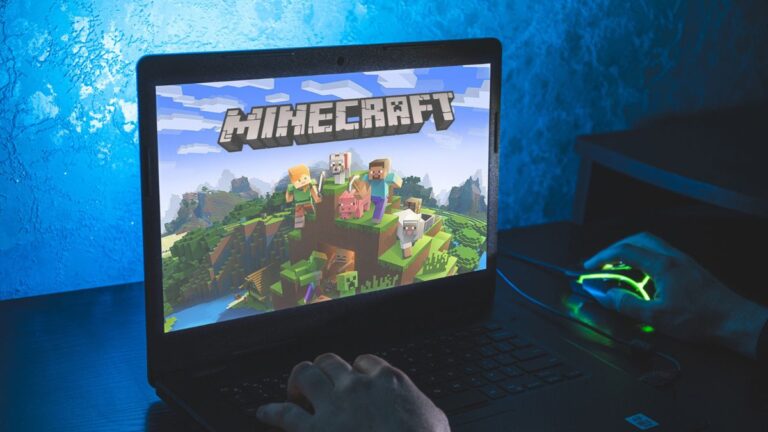How To Coding Games: The Easy Beginner’s Guide

If you or your kids want to learn computer programming, learning how to code games is an excellent place to start. The good news is that learning how to code games has become easier than ever before.
According to Statista, there are over 2.7 billion video game users worldwide in 2023, up from 2.5 billion in 2022. This constant rise in gamers worldwide puts game developers among the most in-demand professionals in the tech industry.
Learning how to code can now be done by playing games tailored to teach beginners fundamental programming concepts. In today’s article, I will walk you through a step-by-step procedure that you can follow to learn how to code games. Let’s dive right in!
Step 1: Learn the fundamentals of coding games
Learning the fundamentals will help you know what to do when encountering various coding game challenges. The easiest way to learn these fundamentals is through playing coding games. Let’s explore some of the best coding games to get started with.
Code Combat
CodeCombat is a web-based game that offers game-like puzzles and challenges that can only be solved by writing code. While it provides entertainment, CodeCombat has an educational focus, offering three-course paths in Computer Science, Web Development, and Game Development. This platform focuses on coding in JavaScript and Python, allowing you to learn several basic and advanced coding skills.
CodinGame
CodinGame is still one of the most popular coding games available. It offers a web app with game-like puzzles and challenges that require writing actual code.
It supports over 25 programming languages, including Java, C#, Python, JavaScript, Lua, Go, Rust, and more. Playing this game allows you to learn coding fundamentals and advanced topics you will need to code games.
Code Wars
Code Wars is a platform that helps you improve your coding skills by training and competing with others. The platform offers various languages, including Python and JavaScript, essential to create games. This platform also allows you to engage in coding challenges to put your skills to the test.
Robocode
Robocode might not be user-friendly initially, but it is a highly regarded programming game. This is a desktop game you can use to learn how to code.
In this game, you code robot tanks and pit them against each other in battles. Robocode offers a challenging and immersive experience that you need to code games.
Untrusted
Untrusted is a meta-JavaScript adventure game that tests your JavaScript skills. Remember, JavaScript is one of the languages you will have to use if you choose to create web-based games. Fortunately, Untrusted is a free and enjoyable game that allows you to practice and learn basic and more complex JavaScript skills.
Related: Best Coding Games For Teens: Get Your Teen Excited About Coding
Step 2: Choose a game engine.
A game engine refers to a software framework that provides game developers with tools and functionalities to create and develop working games.
It is a foundation for building games by handling tasks such as rendering graphics, managing game physics, handling input and controls, and implementing game logic. This reduces the coding burden on the side of the game developer.
Some of the best game engines include:
- Unity
- Source
- Unreal engine
- Cry Engine
- Havok
Factors to Consider When Choosing a Game Engine
- Game Requirements: Consider the specific requirements of your game, such as the genre, platform compatibility, graphics capabilities, and multiplayer support.
- Development Experience: You may need to try different game engines to evaluate your development skills and experience. Some engines offer more user-friendly interfaces and visual scripting options, while others may require more advanced programming knowledge.
- Community and Support: Choose a game engine with a relatively large community. A strong community provides resources, tutorials, and forums for troubleshooting and support, which can be invaluable during development.
- Licensing and Cost: When checking out the above game engines, you will notice that some offer free or open-source options, while others may require upfront payments or revenue sharing.
- Performance and Optimization: You should also evaluate the engine’s performance capabilities and optimization features.
- Future Growth and Updates: Research the track record of the game engine in terms of updates, improvements, and future growth. You may also have to read reviews of previous users to learn more about their experience.
Step #3: Develop the game
These are the standard procedures you will follow when building a game;
- Choose the type of game: Before you even write your first lines of code, you must determine the genre, mechanics, and overall concept of your game. Consider how players interact with the game and the main goal, and establish win/lose conditions.
- Add your game’s visuals: These visual elements include character design, objects, backgrounds, and other graphical assets that create the game’s visual atmosphere.
- Write the game logic: At this stage, you must write and implement the underlying code that drives the game. Depending on the complexity, you may code everything yourself or use a game engine that utilizes existing code libraries.
To write the code for your game, you must use any popular languages for coding games, including C++, C#, Java, JavaScript, Python, and Lua. Each language has strengths and suitability for different game development platforms and requirements. - Test the game: Thoroughly test your game by playing it yourself to ensure all aspects work as intended. Test different scenarios, levels, and gameplay elements to identify and resolve bugs, glitches, or design flaws. You may also request your friends and family to try out the game so that you learn about their feedback.
Final Thoughts
In summary, the accessibility of learning how to code games has increased with interactive coding games like Untrusted, Code Combat, CodinGame, Code Wars, and Robocode. Additionally, selecting a suitable game engine is vital in this process.
Once you have grasped the coding fundamentals, you can proceed with the game development steps, which include conceptualization, adding visuals, writing game logic using programming languages, and testing the game. Starting with simpler games that involve writing a few lines of code is a great way to begin your game coding journey.






